Quick Read
Gatorade, created by Dr Robert Cade in 1965 for the Florida Gators, is a leading sports drink brand. Produced by PepsiCo and available in over 80 countries, Gatorade’s success is attributed to its effective formulation and robust digital marketing strategies. The SWOT analysis of Gatorade reveals its principal strengths, weaknesses, opportunities, and threats.
Learn From Asia’s #1
Digital Marketing Institute
AI-Based Curriculum
Dive in to the future with the latest AI tools
Placement at top brands and agencies


 & more...
& more...

In the previous blog, we conducted an in-depth examination of the SWOT analysis of Red Bull—the world’s leading energy drink. In this blog, we will explore the SWOT analysis of Gatorade, one of the top sports drink brands.
So the question arises: Who owns Gatorade, or what exactly is Gatorade? Simply put, Gatorade is an American-made sports drink created by Dr Robert Cade. Gatorade was originally developed for the Florida Gators, a football team at the University of Florida, at the request of head coach Ray Graves. As the players’ carbohydrates and proteins were being depleted during intense sports activities, Gatorade was formulated with a blend of water, sodium, sugar, potassium, phosphate, and lemon juice to replenish these essential nutrients.
The drink proved effective for the players, and since then, it has gained immense popularity. Gatorade’s digital marketing strategies have also played a significant role in its global success. Marketed as a vibrant beverage closely associated with good health and sports, Gatorade’s success is evident.
In this case study, we will delve into the SWOT analysis of Gatorade, examining its strengths and weaknesses. We will explore how these factors contribute to its market position and compare them with the Powerade SWOT analysis. But first, let us understand more about the Gatorade company and its products.
About Gatorade
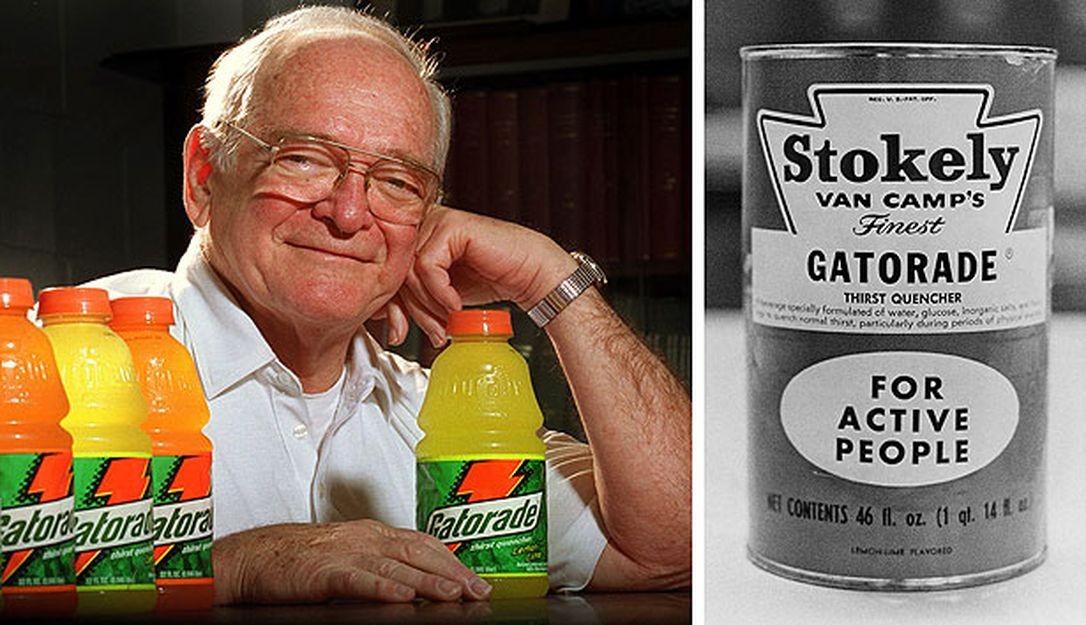
(Dr Robert Cade – The Founder of Gatorade, Source: Toronto Star)
Gatorade is a sports-themed beverage and snack company based in the United States. Its renowned range of sports drinks is Gatorade, manufactured by PepsiCo and sold in over 80 countries. Developed in 1965 by Dr. Robert Cade and his team, a Gatorade SWOT analysis reveals the brand’s competitive strengths and weaknesses.
Acquired by the Quaker Oats Company in 1987 and PepsiCo in 2000, Gatorade became PepsiCo’s fourth most successful brand by 2010. It holds 75% of the sports drink market in the US. The original recipe included phosphate, potassium, sugar, sodium, and water. The Gatorade SWOT analysis highlights its significant strengths and weaknesses.
Initially considered ‘Gator-Aid’, the name was changed to Gatorade to sound less scientific. Understanding the weaknesses of Gatorade through a SWOT analysis of Gatorade provides insights into its market position. Comparing it with competitors through a Powerade SWOT analysis can further highlight its relative advantages and challenges.
If you’re interested in diving deeper into digital marketing strategies and understanding how to leverage such analyses for business growth, consider exploring a post-graduation in digital marketing.

(Gatorade Range of Products, Source: Amazon)
What’s new with Gatorade
Business News:
- Gatorade has partnered with a fitness app to offer personalised hydration and performance insights based on workout data.
- The brand is expanding into new distribution channels, including health-focused convenience stores and online platforms.
Product Launch:
- Gatorade has launched a zero-sugar sports drink line with flavours developed from consumer feedback.
- They’ve introduced a new sports drink bottle with a hydration tracker to monitor fluid intake during exercise.
Marketing News:
- Their latest campaign features real athletes discussing how Gatorade supports their training, focusing on personalised hydration.
- An interactive social media challenge encourages users to share their hydration routines for a chance to be featured in Gatorade’s marketing.
Celebrity News:
- Gatorade has signed a prominent football player to promote their latest products and inspire young athletes.
Buyer Persona Of Gatorade

Buyer’s Persona
Name:
Alex Taylor
Place:
Los Angeles, CA
Age:
28 years
Profession:
Fitness Trainer
Motivation
- Enhancing athletic performance.
- Staying hydrated during workouts.
- Recovery after intense physical activity.
- Access to a range of flavours and options.
- Maintaining energy levels throughout the day.
Interest & Hobbies
- Weightlifting.
- Running.
- Playing Basketball.
- Following sports news.
- Exploring new workout routines.
- Watching fitness and health-related videos.
Pain Points
- Limited availability of products in some stores.
- High price compared to other sports drinks.
- Concerns about the sugar content.
- Lack of information on ingredient sourcing.
Social Media Presence
- YouTube
SWOT Analysis of Gatorade
Carrying out a detailed SWOT Analysis of Gatorade helps find its strengths, weaknesses, opportunities and threats. Understanding internal strengths and weaknesses and external opportunities and threats. SWOT analysis helps in forming correct objectives and plans for the future.
To better understand the SWOT analysis of Gatorade, refer to the infographics below:
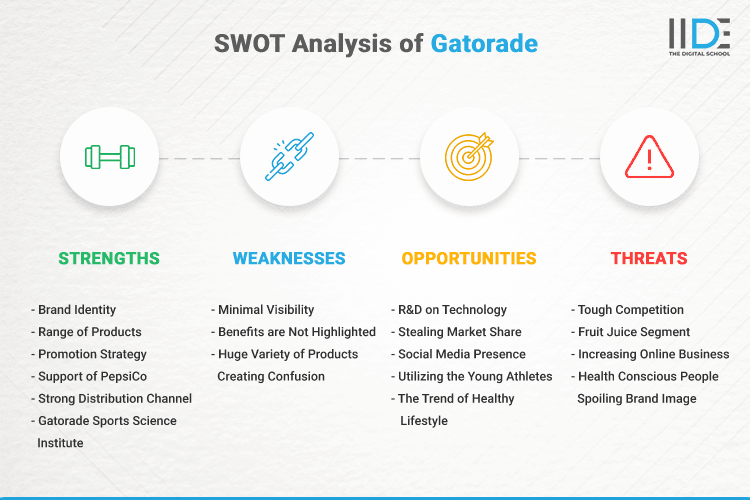
So let us go ahead and first glance at the strengths of Gatorade from the SWOT analysis of Gatorade.
Strengths of Gatorade
Strengths reflect everything an organisation excels at and why it distinguishes itself from the competition. These are the internal and positive attributes of any company. The Gatorade Company demonstrates several key strengths:
1. Unique Product Range
Gatorade‘s product range, which includes the innovative Thirst Quencher, Frost, energy bars, and protein drinks, sets it apart in the sports nutrition market. This diversity positions Gatorade as a strong competitor.
2. Strong Distribution Channel
The company benefits from robust distribution channels in over eighty countries, creating a near-monopoly in the United States, where it controls approximately three-quarters of the market. Understanding the SWOT analysis for sports teams can highlight how Gatorade maintains this dominance.
3. Influential Promotion Strategy
Gatorade‘s significant investment in product promotion, often featuring sports legends for endorsements and leveraging its extensive fan base, is a key element of its success. This strategy, aligned with the SWOT analysis sports team approach, is a major contributor to Gatorade’s market presence.
4. Brand Identity
Gatorade’s strong brand identity is reinforced by its use of world-class athletes to promote its products, ensuring the brand is synonymous with sports nutrition. This reflects the Gatorade theory of effective brand management.
5. Gatorade Sports Science Institute
The Gatorade Sports Science Institute is a valuable asset, enhancing the company’s reputation through rigorous scientific research supporting the brand’s claims.
6. Support Of PepsiCo
Being owned by PepsiCo, who owns Gatorade, has provided significant backing and development opportunities for the brand. This stable parent company boosts Gatorade’s profile and market presence, demonstrating the advantages of solid corporate support.
Overall, while analysing Gatorade, it’s also essential to consider its disadvantages and perform a Gatorade case study analysis to understand the broader context of its market position.
If you’re interested in learning more about effective marketing strategies, including digital marketing, consider exploring digital marketing classes to enhance your knowledge and skills.
Weaknesses of Gatorade
The weaknesses of Gatorade can hinder the company from reaching its full potential. These negative internal factors weaken the business’s strengths. Some drawbacks of the Gatorade company include:
1. Minimal Visibility
Despite being a major player, more visibility is expected from them. They have not delivered extensive advertising campaigns, which limits their market presence. The Gatorade SWOT analysis indicates that their advertising efforts do not fully leverage the brand’s strengths, leaving them less prominent than they could be.
2. Benefits Are Not Highlighted
Due to this moderate visibility, the benefits of Gatorade’s products are not well recognised. Although the Gatorade theory involves scientifically developed products aimed at addressing athletes’ conditioning and hydration needs, these advantages are not actively promoted. This lack of effective advertising has led to a general ignorance of their benefits.
3. Huge Variety of Products Creating Confusion
The extensive range of products offered by Gatorade has confused customers. The multitude of flavours and types has made it challenging for consumers to choose, impacting their decision-making process. This confusion has contributed to a loss of market share to competitors. The Gatorade case study analysis reveals how this wide variety could be a disadvantage, complicating customer choices rather than simplifying them.
Understanding these Gatorade disadvantages is crucial for recognising areas where the brand can improve. For further insights, reviewing a SWOT analysis for sports team could provide additional context on how Gatorade can address these issues.
For those interested in enhancing their marketing skills and understanding how to effectively address such challenges, consider exploring how to study digital marketing online.
Opportunities for Gatorade
Opportunities are factors that provide an organisation with a chance to gain an edge over competitors. These external elements can contribute to the success of any company. Some key opportunities for Gatorade include:
1. Utilising Young Athletes
Gatorade has effectively leveraged the popularity of sports and the influence of various superstars to promote its products. With new athletes emerging continually, the brand has significant marketing potential to engage with and retain the audience’s interest in these young talents, which could be explored further in a Gatorade SWOT analysis.
2. The Trend of Healthy Lifestyles
As leading a healthy lifestyle becomes increasingly popular, Gatorade can capitalise on this trend. This presents opportunities for diversifying and expanding their product portfolio into new areas, a factor that could be highlighted in the SWOT analysis of Gatorade.
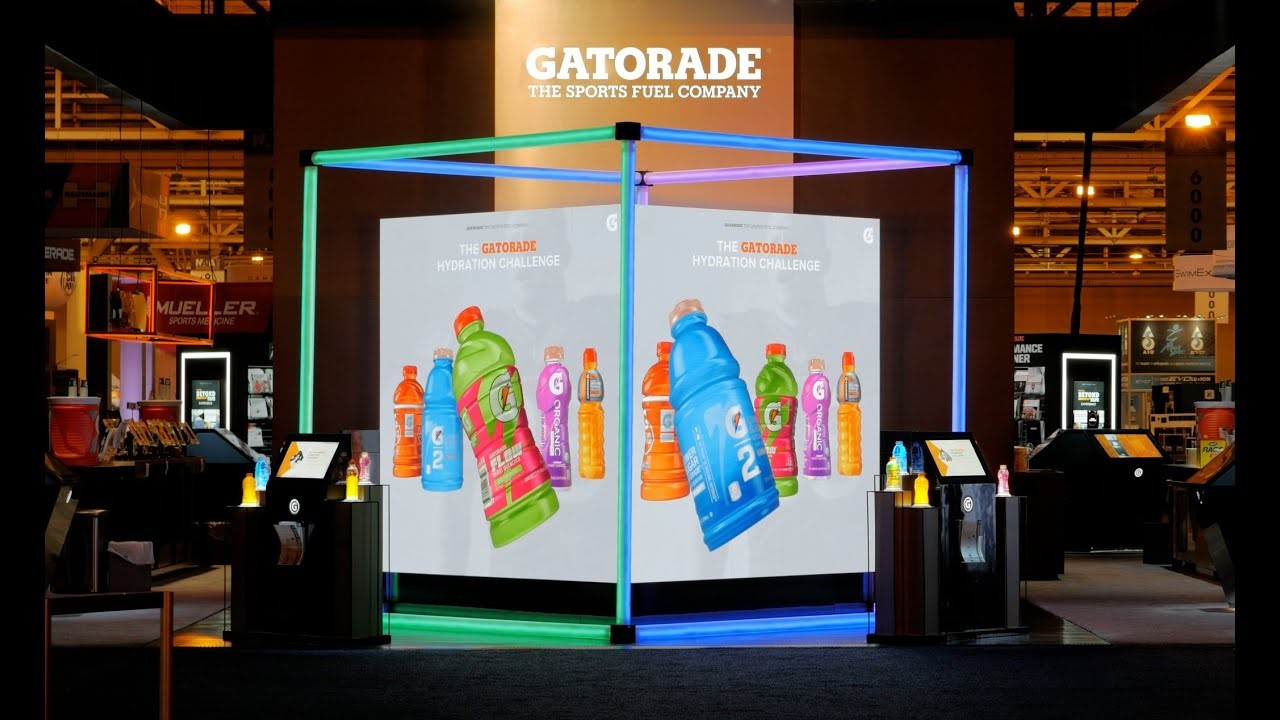
(Gatorade Digital Experience, Source: Youtube)
3. Social Media Presence
Gatorade boasts a strong social media presence, with over 1 million followers on Instagram. By sharing video clips featuring prominent athletes using Gatorade, the brand drives sales through this strategy. To sustain its success, Gatorade should continue to enhance its social media engagement, leveraging this platform to address Gatorade’s weaknesses.
Gatorade is achieving huge success in the market because of its appealing social media presence. Not only Gatorade but most of the other sports nutrition brands generate half of the sales from social media & e-commerce. Achieving this is only possible by learning and implementing various digital marketing skills. You can also achieve success by learning the same and it is important to learn these skills in today’s digital world. To learn these essential skills and boost your career prospects, consider exploring digital marketing courses with placement.
4. Stealing Market Share
Backed by a strong parent company and a powerful brand image, Gatorade has the opportunity to capture market share from competitors. Utilising the latest technology to present alternatives to competing products is a viable strategy, which could be part of a Gatorade SWOT analysis to identify Gatorade’s strengths and weaknesses.
5. R&D on Technology
The technology sector offers ample potential for Gatorade. Investing in research and development can lead to innovative solutions to current challenges in sports nutrition.
Threats to Gatorade
Top Competitors
1. Powerade
Powerade, by The Coca-Cola Company, offers a range of flavours and electrolytes aimed at hydration during sports. Known for its affordability and widespread availability, it directly competes with Gatorade in the sports drink market.
2. BodyArmor
BodyArmor, owned by Coca-Cola, features premium sports drinks made with natural ingredients like coconut water. It promotes a healthier alternative to traditional sports drinks, appealing to health-conscious athletes and active individuals.
Lucozade Sport
Lucozade Sport, from Suntory Beverage & Food, is a leading UK sports drink brand. It focuses on hydration and performance with a variety of flavours, catering to athletes and active consumers in the UK and beyond.
Accelerade
Accelerade, by PacificHealth Labs, combines carbohydrates and proteins to support both hydration and muscle recovery. It targets endurance athletes with its dual-action formula designed for enhanced performance and quicker recovery.
Rogue Fitness
Rogue Fitness offers sports supplements and electrolyte drinks alongside premium fitness equipment. It focuses on performance and recovery solutions, catering to dedicated athletes and fitness enthusiasts with high-quality products.
PS: Discover essential skills through our free digital marketing masterclass and free top-paying skills course.
Conclusion
Gatorade’s SWOT analysis highlights its distinctive and commendable culture, delivering an excellent alternative to water for its primary clientele. The Gatorade company is dedicated to not only addressing the needs of its loyal customers but also to caring for the environment. In a short span, Gatorade has successfully captured the athlete market and now supports numerous high-profile sports personalities. The brand exemplifies continuous improvement, enabling athletes to perform at their best.
As a major player in the sports nutrition industry operating across multiple countries, Gatorade must persist in innovating and developing new products. Employing effective marketing strategies, particularly in digital marketing, is crucial in today’s evolving landscape to achieve better results and maintain a competitive edge.
Many other companies use strategies like these to promote their businesses and take them to the next level.Don’t believe us? Check out these digital marketing case studies and see for yourself.
We hope this blog on the SWOT analysis of Gatorade has provided valuable insights into the company’s strengths, weaknesses, opportunities, and threats.
If you agree with it and are interested in learning more about digital marketing strategies? Explore our digital marketing blogs.
Or you can consider some of the courses offered like digital marketing courses in Delhi, digital marketing courses in Gurgaon, and digital marketing courses in Pune. These resources can equip you with the knowledge and skills to navigate the exciting digital marketing landscape.
Thank you for reading, and please share your thoughts on this Gatorade SWOT analysis in the comments section below.
FAQs About SWOT Analysis of Gatorade
Q1. What is Gatorade?
Gatorade is a renowned sports drink developed by Dr Robert Cade in 1965, designed to replenish fluids and nutrients lost during physical activity. It is now produced by PepsiCo.
Q2. Who owns Gatorade?
Gatorade is owned by PepsiCo, which acquired the brand in 2000.
Q3. In how many countries is Gatorade sold?
Gatorade is sold in over 80 countries worldwide.
Q4. What are the main ingredients in Gatorade?
The original Gatorade formula includes water, sodium, sugar, potassium, phosphate, and lemon juice.
Q5. How did Gatorade become popular?
Gatorade's popularity stems from its effective formula and successful digital marketing strategies, which are detailed in the SWOT analysis of Gatorade.
Q6. What is the SWOT analysis of Gatorade?
The SWOT analysis of Gatorade examines the brand's strengths, weaknesses, opportunities, and threats, providing insights into its market position and competitive landscape.
Q7. What strengths does Gatorade have according to the SWOT analysis?
According to the SWOT analysis of Gatorade, its strengths include its strong brand image, effective product formulation, and impactful marketing strategies.
Q8. What are some weaknesses of Gatorade?
The SWOT analysis of Gatorade identifies weaknesses such as potential health criticisms and intense competition from other sports drinks and alternatives.
Q9. How does Gatorade's digital marketing contribute to its success?
Gatorade’s robust digital marketing strategy enhances its global presence and brand association with health and sports, as highlighted in the SWOT analysis of Gatorade.
Q10. What opportunities and threats are noted in the SWOT analysis of Gatorade?
The SWOT analysis of Gatorade outlines opportunities such as leveraging young athletes and expanding into new markets, while threats include competition and changing consumer preferences.









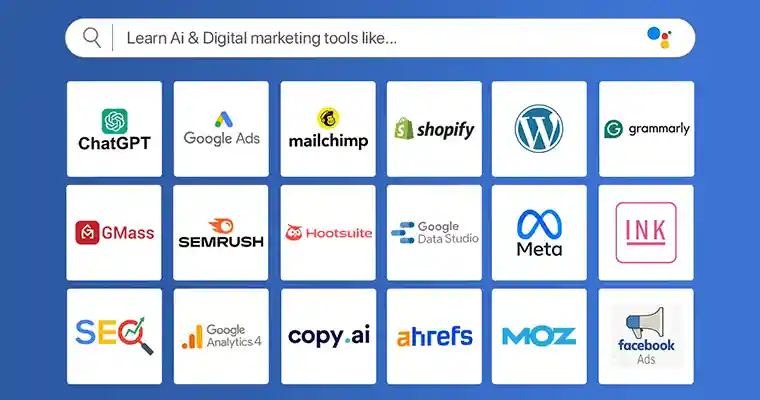




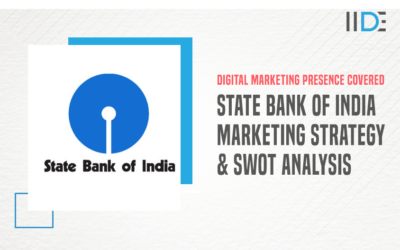
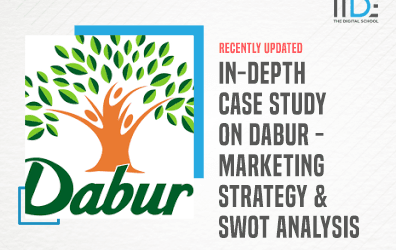
0 Comments